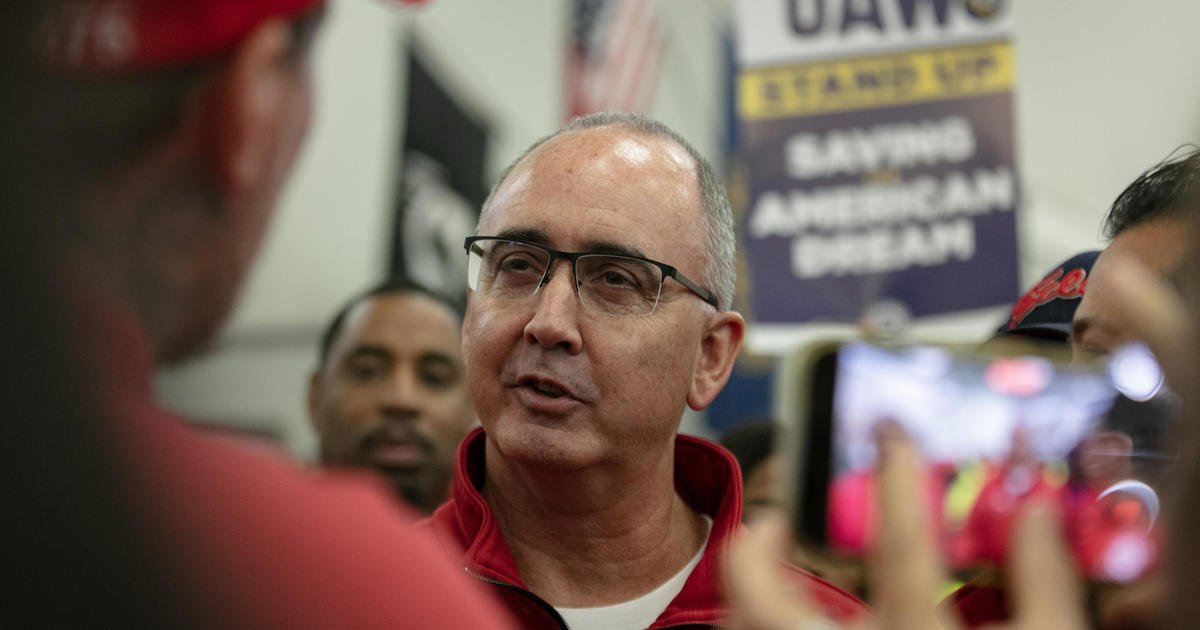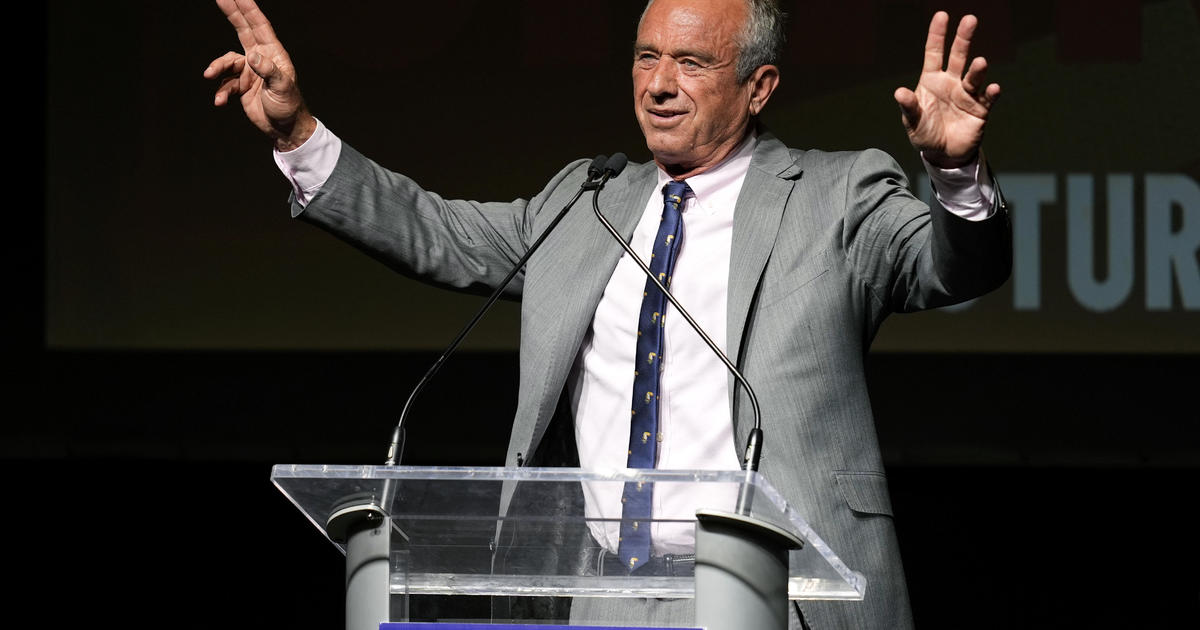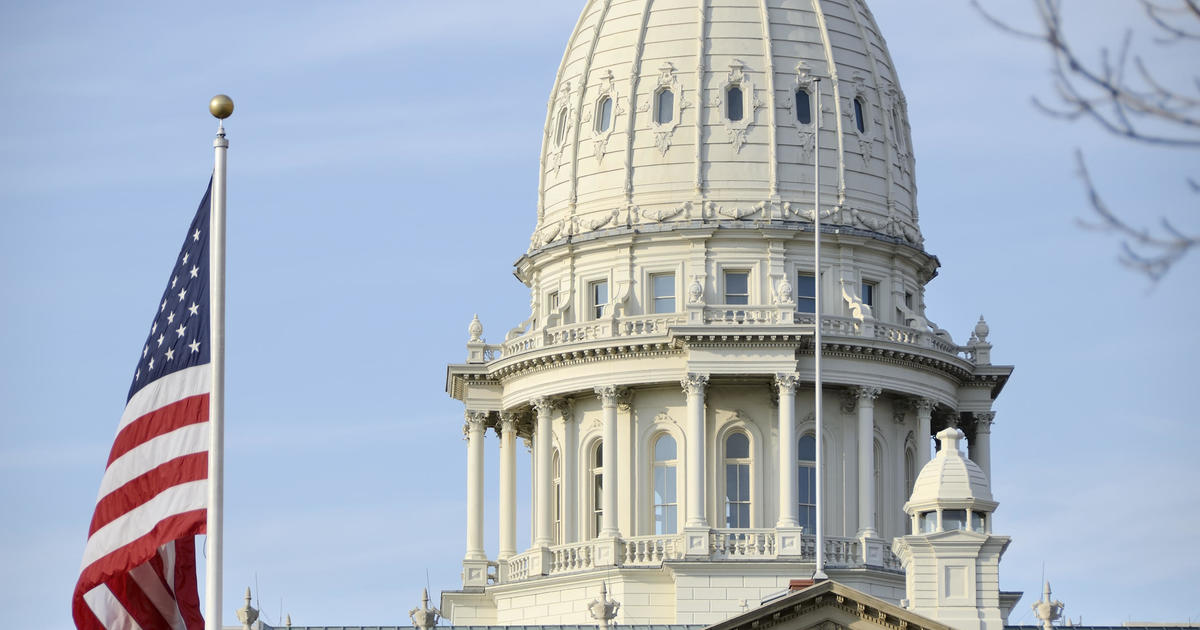Union Members Motivated By Right-To-Work Vote
By Jeff Karoub, Associated Press
LANSING (AP) - Jill Laurin-Maxwell, a teacher from Lapeer, had tears in her eyes as she asked United Auto Workers President Bob King, "Are we going to be OK?"
The two were among hundreds of union members and leaders licking their wounds at the Michigan Capitol Thursday night after a swift, double-barreled attack: Both the House and Senate introduced and passed legislation in one day approving right-to-work laws limiting labor groups' powers.
King, whose private attempts to forge a compromise with Republican Gov. Rick Snyder failed earlier in the week, said in effect, "We will."
"Never have all the unions come together as strongly as they are now," he counseled Laurin-Maxwell. "In every crisis, there's opportunity."
Is such an opportunity possible or is it putting on a good face in the wake of stinging defeat? One labor expert said the issue itself is enough to corral the labor movement, but making real change will be their ultimate test.
"This would definitely galvanize union leadership," said Art Schwartz, a retired General Motors labor negotiator who teaches at Wayne State University and runs a labor consulting business. "Like any other group, some people get involved, some people don't, but I think you're going to see the unions fight this every way they can."
A civil disobedience training session was scheduled for Saturday at a union local in Dearborn and grassroots protests were being planned across the state throughout the weekend. But many labor groups were gearing up for mass rally in Lansing on Tuesday when legislators return to session and aim to finish work on the right-to-work bills.
The scene at the state Capitol certainly suggested a united front for labor. Thousands of protesters from many groups massed outside the Capitol or ringed the rotunda and clogged the halls inside, chanting, whistling and stomping. Out of concerns for the safety of people and the historic building, authorities said, they temporarily closed the building and kept hundreds outside, where at one point they chanted "let us in" up to the House chamber above. A judge later ordered the building reopened.
Some were gung-ho, arguing with representatives of the Michigan chapter of the Americans for Prosperity. The group pushed the legislation it sees as good for the state's economy and argues workers deserve to choose whether to pay money to unions. Inside, eight people were arrested after authorities say they disobeyed orders and tried to rush past two state troopers and into the Senate chamber.
Michelle Cook, a teacher from the Detroit enclave of Hamtramck, was among the hundreds outside. She said the legislation would allow people to "not pay their fair share," and that would hamper unions' ability to negotiate for good wages.
"They're trying to erode our collective bargaining rights," she said as a group chanted "let us in" up to the House chamber from the grounds below. "Legislators are missing an opportunity if they don't listen to our voices."
Schwartz said Cook's message about fairness is the one that union members and leaders are going to have to spread beyond their membership for it to gain traction.
"A lot of people who aren't union members don't see the issue. They say, `That's democracy, isn't it? You do what you want to,"' he said. "It's up to the unions to present the other side of the argument. ... Under right-to-work, I want the benefits but I don't have to pay for it. It's not a democracy thing: It's a way of getting out of paying your fair share."
Ivan Moreland was one of many the Capitol who shared the idea of fighting on. But as others around him carried on in the Capitol rotunda, he was still and downcast. The president of the American Federation of State, County and Municipal Employees Local 652 in Kalamazoo said enactment of right-to-work laws likely would harm workers in ways many don't even realize.
"We'll lose a lot of what we got right now," said Moreland, whose local represents employees at the Kalamazoo Psychiatric Hospital. "Wages will be lowered, benefits will be changed. ... I could be wrong but I really don't think I am."
Lapeer teacher Laurin-Maxwell says she's motivated to press on- she's even considering running for office as a result of the legislative moves. But the high school teacher says she fears right-to-work could result in more cuts to her wages, and wonders if she'd made the right career choice by leaving the auto assembly line.
"I was very proud to be a 3rd-generation auto worker," she said. "(But) I never thought being a teacher I would say the biggest mistake of my life was leaving the assembly line and being a teacher. My degree means nothing. My degree doesn't save me, and I'm worse off."
© Copyright 2012 The Associated Press. All Rights Reserved. This material may not be published, broadcast, rewritten or redistributed.



